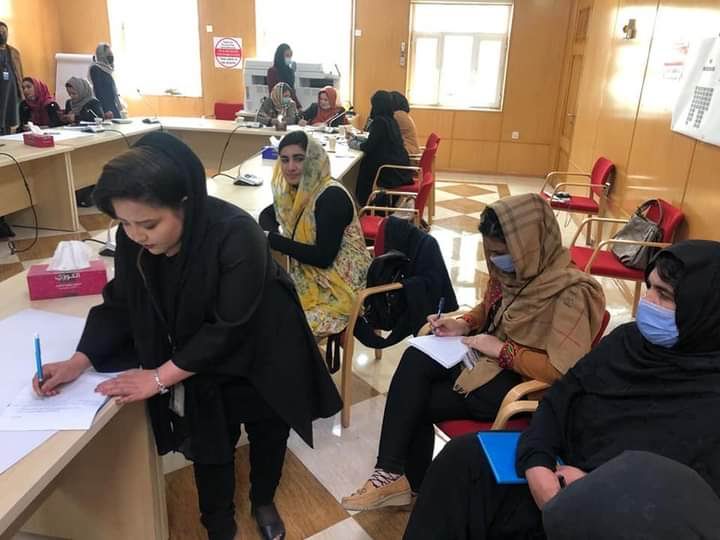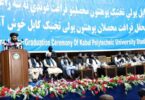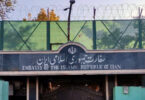KABUL (Khaama Press): Farzana Ahmadzai is an entrepreneur who established a tailoring workshop in Kabul, creating opportunities for 110 individuals. She emphasizes that the silence of women in the face of growing constraints suppresses the potential of millions of Afghan girls.
Managing her workshop amidst heightened restrictions on women’s education, work and life, Farzana established a tailoring workshop two years ago in Dasht-e-Barchi, Kabul. Currently, alongside men, 35 women between the ages of 15 and 35 who have survived school closures or government job layoffs work at the workshop.
In her workshop, 110 men and women work, including 35 young women who are either school survivors or have been laid off from government jobs. Most of these young women are heads of their households.
Farzana Ahmadzai named her workshop “Frishta Arizoo” and engages in designing and sewing women’s, children’s, and men’s clothing. The products are not only used within the country but are also exported to other countries.
Frishta Arizoo Tailoring Workshop distributes its products in various parts of Kabul Ghazni province and maintains a small representative office in Pakistan. They also export the famous “Afghan scarf” to Germany. The workshop’s founder aimed to escape mental challenges and confront imposed restrictions through its establishment.
Despite Afghanistan’s conditions, where women are even constrained in planning their personal life paths due to pressure from restrictions, Farzana says, “As an Afghan girl, I did not want to be disheartened in these inappropriate conditions and lose myself amidst problems and restrictions. Now I feel proud that I could create opportunities for women.”
She views the market conditions and sales of her workshop’s products as satisfactory, and they plan to export goods to all 34 provinces of Afghanistan shortly. “We want our workshop to expand and achieve global export levels. We aim for citizens to use Afghan products instead of Chinese and Turkish goods.”
Farzana hopes that national and international institutions supporting small businesses will support her. She continues to encourage Afghan girls not to remain silent in these circumstances and to transform constraints into opportunities.







